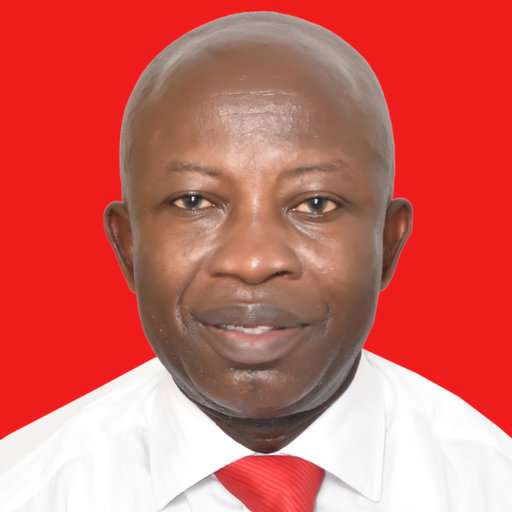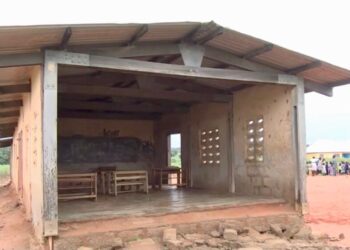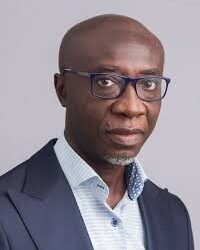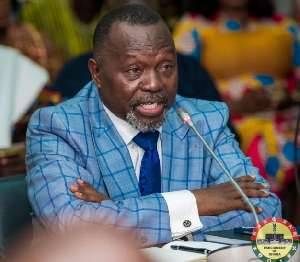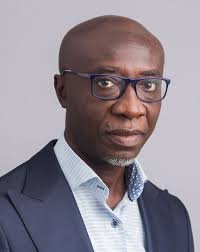A political scientist at Kwame Nkrumah University of Science and Technology KNUST, Dr. Kwesi Amakye Boateng has expressed concern over the ongoing debate surrounding the discrepancies in the voter register. The core issue is whether the Electoral Commission (EC) of Ghana was aware of these discrepancies before the National Democratic Congress (NDC) raised them or if the NDC’s intervention brought the matter to the fore. Dr. Boateng questioned the EC’s capacity to independently identify errors or irregularities in the voter register, stating that their reliance on the NDC to flag such issues raises significant concerns.
“Was it the EC that found out the discrepancies in the voters register and then informed Ghanaians, or did they [assume] that everything was okay until the NDC came up with it?”
Dr. Kwesi Amakye Boateng Political Scientist at Kwame Nkrumah University of Science
This statement highlights a crucial question; Should the EC, as the primary body responsible for ensuring the integrity of the electoral process, have the capacity to identify and correct such discrepancies without external pressure?
The EC’s response to the concerns raised by the NDC has been to request that the party provide evidence of the irregularities before any further actions are taken. This move has prompted further skepticism about the EC’s ability to independently manage the situation. Dr. Boateng criticized this approach.
“Why is it that the EC is saying that the NDC, finish us with what you’ve got before we are able to proceed to ensure that we have a clean voters register?’ Don’t they have the capacity themselves?”
Dr. Kwesi Amakye Boateng Political Scientist at Kwame Nkrumah University of Science
This remark underscored the frustration of many stakeholders in the electoral process who feel that the EC should not rely on political parties to expose flaws in the system. Instead, the commission should proactively ensure the credibility of the voter register.
“The mere fact that the EC is acknowledging that, on our own, we are not able to unearth all errors in the voters register… the core for the NDC to provide additional information is an admission that they, by themselves, are not able to address the challenge before them.”
Dr. Kwesi Amakye Boateng Political Scientist at Kwame Nkrumah University of Science
This statement emphasized the importance of the EC demonstrating its competence in handling election-related matters without relying on external inputs. In a politically charged environment, any perceived weakness in the EC’s ability to ensure transparency and fairness could lead to distrust from the public and political parties alike.
The Need for a Middle Ground
Dr. Boateng urged both the EC and political parties to find a middle ground in addressing the issues at hand. He acknowledged the gravity of the situation.
“In the situation that we find ourselves in as Ghanaians, and given the fact that the EC does not own the elections… one of the biggest parties feels that the EC is partially or somehow… with their political opponents. We simply find ourselves in such a terrible situation.”
Dr. Kwesi Amakye Boateng Political Scientist at Kwame Nkrumah University of Science
Dr. Boateng’s statement underscored the fragile state of trust in the electoral process. With the NDC calling for a forensic audit and the EC appearing reluctant to take full responsibility for addressing the discrepancies, the situation has escalated to the point where a resolution is critical for the credibility of the upcoming elections. He argued that this could be the best way to restore public trust and ensure that the elections proceed smoothly and fairly. He pointed out; “Why not bring in an outsider whose influence, whose role, will simply offset all these misunderstandings and challenges?”
This recommendation is a broader reflection sentiment that the involvement of an impartial third party may be necessary to avoid a potential electoral crisis. Given the political tension and the risk of a disputed election, having an independent body conduct a forensic audit may offer a neutral solution to the current standoff. He reiterated; “Who should be the beneficiary of the outcome of credible elections? Ghanaians, Not the EC.”
This captured the essence of the electoral process, the need for an impartial, transparent, and competent body that ensures that the will of the people is accurately reflected in the election results. Forensic audits and independent oversight may be the necessary steps to restore confidence in the system and guarantee the integrity of future elections.
“It’s not too much for any party to call, one, for a forensic audit, and two, for an independent body to come in to help us Ghanaians address this challenge.”
Dr. Kwesi Amakye Boateng Political Scientist at Kwame Nkrumah University of Science
This perspective highlighted the need for all stakeholders to prioritize national interest over political expediency to ensure a credible, transparent, and peaceful electoral process.
READ ALSO; Elorm Aba Explains Criticisms Against Portia Asare’s ‘Juju’ Claims

